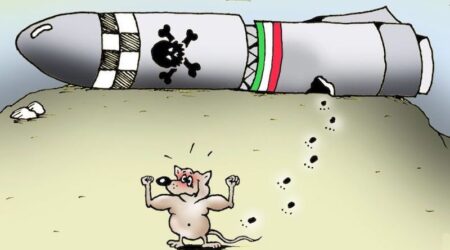Paging Dr. Watson
After beating the two most prolific champions of Jeopardy!, IBM’s “Watson” computer has been hired by WellPoint, one the nation’s biggest insurers, to give medical advice and authorize treatments. For someone such as myself, who eats, sleeps, and breathes tech, one might expect my opinion to be favorable. After all, Watson is expected to […]
 After beating the two most prolific champions of Jeopardy!, IBM’s “Watson” computer has been hired by WellPoint, one the nation’s biggest insurers, to give medical advice and authorize treatments. For someone such as myself, who eats, sleeps, and breathes tech, one might expect my opinion to be favorable. After all, Watson is expected to be able to give advice and authorize treatment based on its confidence in reviewing a patient’s chart, treatment databases from WellPoint, and its own huge medical library of journals and text instantly, providing several treatment options. Amazing!
After beating the two most prolific champions of Jeopardy!, IBM’s “Watson” computer has been hired by WellPoint, one the nation’s biggest insurers, to give medical advice and authorize treatments. For someone such as myself, who eats, sleeps, and breathes tech, one might expect my opinion to be favorable. After all, Watson is expected to be able to give advice and authorize treatment based on its confidence in reviewing a patient’s chart, treatment databases from WellPoint, and its own huge medical library of journals and text instantly, providing several treatment options. Amazing!
Watson loves to read. Speaking of reading, if you’re looking for a little bit of light reading yourself, pick up Atul Gawande’s Complications: A Surgeon’s Notes on an Imperfect Science. In a captivating writing style, Gawande tells about ten stories that demystify the infallibility of doctors and the medical profession. One particular vignette comes to mind. Gawande pays a visit to a cardiologist to conduct an interview, walks into the surgeon’s office, and finds him at his desk with a huge pile of x-ray films. Each film is of a different heart. When asked, the cardiologist says that he is trying to guess which hearts are in cardiac arrest. His findings were to be compared to a machine, tasked with the same objective. The idea? To see whether man or machine is more accurate at making a diagnosis.
Gawande talks of his own intuition in another vignette. He explains that the medical desk reference had said to send a particular patient home, but his gut told him otherwise. What do these vignettes and Watson have in common? Glad you asked, Trent!
My father gave me some of the best advice I ever heard. One such snippet I use repeatedly when I play poker, “No computer can simulate the gifted intelligence or utter stupidity of a human being.” Sage advice, pop. Sage advice. When you need a car diagnosed, a computer is a powerful means of quickly finding and resolving the problem. The mechanic only requires the intelligence necessary to plug something in and push a button. But what happens when we use computers to help us diagnose humans? You may call your four-banger Honda “Nancy,” but if you fill her up with regular gas on a Saturday night rather than taking her for some expensive premium because you want to be able to buy that case of Mountain Dew, she won’t nag you and spend the night at her sister’s. Cars are, well, inhuman. It is completely different to use a computer to diagnose a car and to use a computer to diagnose a human.
Gawande’s cardiologist who was in a grudge match to determine who is the champion of cardiac arrest diagnoses lost by about 10%. So why wouldn’t you want the machine to make the determination? Simple. When a machine is programmed to be perfect, it doesn’t take chances. It would offer its most confident diagnosis every time – with other options, of course. So what compelled Gawande to go against the odds at the desk reference to make a diagnosis that ultimately saved a life? Nothing more than a passing glance, a whisper by a rare but deadly killer that blends in the crowd so well that, statistically speaking, had he not heard of a flesh-eating bacteria weeks prior he never would have thought of it and his patient would have been dead 48 hours later.
So, Dr. Watson (cute, no? I’m going to ask for royalties) is going into medical practice. And this isn’t necessarily a bad thing. But care should be exercised that this move does not begin an exodus of the human element from the most human of all practices: treating humans.
By Edward Burns
Edward Burns has worked in wireless retail sales for nine years, including seven years in management. He left wireless to get his English degree at U.C. Berkeley, but still loves to keep up with the happenings of wireless equipment. He is a gadget freak, builds his own computers, and is an early adopter of new technologies.





